#literature rant
Text
Me, before reading Dracula: Eh, I dunno about this Jonathan dude. He’s so boring in all the movies. Whatever, we’ll get to Drac soon.
Me, after reading Dracula: Jonathan Harker is an amazing character that deserves to be in the same considerations as Frodo Baggins and Edmund Pensive. He is a good-hearted and kind man that defied the typical male hero archetypes of the time. Jonathan isn’t strong enough to face the monster. Of course he isn’t. He’s one little guy against a living nightmare, but he’s saved by the love he has for his fiance. He is soft and kind and every adaptation has done him so dirty, making him stuffy and prudish to justify shipping Mina with Dracula who is more in line with the typical masculine ideals of the time. Also, trying to force a romance between Mina and her assaulter is really kind of fucked up. Jon and Mina Harker are wonderful and deserve the world.
#incorrect super smash bros#not a quote#Dracula#Dracula Daily#Jonathan Harker#Mina Harker#Mina Murray#Jonmina#rant#literature rant#literature#classical literature#Bram Stoker
1K notes
·
View notes
Text
I want to pick a fight with my composition and literature professor so badly. There are so many bad takes in this class.
Also, in a discussion about what literature is, what we personally consider to be literature or not, and why, they assumed I didn't do the reading because I mentioned things that were not included in the reading...have you never read a thing and then decided to do further research? Sorry that mentioning Russian Formalism as one of the lenses that have been used to attempt to define literature confused you, professor, who spent the entire Week Two class resources talking about how kids these days don't read and thus naturally find the task of writing about literature "daunting" and "useless." I guarantee you the majority of us don't have that problem. Have you ever been exposed to the internet? The issue is not that kids these days don't read books and write about them, we do this to the extreme. The issue is a trained lack of reading comprehension due to schools teaching the "one right answer" approach to literary analysis, a mentality that has found a thriving home among internet discourse accounts.
I acknowledge I have severe sample bias if I were to say, "All my friends love literature," because that is the social circle I'm immersed in, but I'm at least aware of how many of my peers outside of that circle treat books and reading in general. I know a lot of them don't read enough. The origin of that tends to be they are extremely overtaxed when it comes to time and energy, not "they think reading is daunting, boring, and/or useless."
I also don't think that literature needs to be redefined to include memes, tweets, and song lyrics (the examples the course materials gave) and that literature is dead (exact phrasing) if we do not. I think there can be literary merit in any format, and I'm not against broader definitions of literature, but the debate is the same as asking, "What is art?"
Is art dead if we don't include AI anime girls and a banana taped to a wall? No. There are still plenty of people who paint in a style you would recognize as "art." The question of "what art is" is an entirely different debate than "are kids these days creating and consuming art as I currently consider it?" They shouldn't be tied to each other like, "Well, no one likes Monet anymore (false), so I guess we need to expand the definition of art so it isn't dead."
#not bothering with sources in this because the professor didn't bother with sources in claiming youth doesn't read#rant#literature rant#english lit#tell me if you disagree with any of this#i'm curious if i'm the one wrong here but come on#'you should do the reading because then you would know if [thing they haven't read] counts as literature'#buddy I decided to use more than one lens of analysis. I came to the conclusion that it is but also that it is subjective.#and I'm sure they haven't read it because I purposefully chose a niche and *difficult to apply the readings to* example#long post
12 notes
·
View notes
Text
Literature Rant
I’ve been seeing a lot of misinformed takes on the Ministry of Truth by a bunch of people who have clearly either not read 1984, or read it with an agenda, trying to find a particular meaning in it. 1984 is about a lot of things, so it’s easy to twist pieces of it to fit one’s world view.
As someone with a formal education but no credentials to back that up (I burned out 5 credits away from my Bachelors of Science in Liberal Studies. Note: not Liberal ARTS, Liberal STUDIES. I took classes on Asian art, modern dance, paleontology, sociology, women’s studies, queer studies, etc. A dilettante’s dream of a degree path.) I have some experience interpreting classic literature through an academic lens, but I can only tell you what I took from the book. However, I read it in the before times, in the long, long ago, when NSYNC was still together, and have only skimmed parts to refresh myself in the years since.
The Ministry of Truth in 1984 does many things in the book, they control access to information, what information the people can access, but most important to the story is what the protagonist does as an employee of the Ministry of Truth. Our protagonist, Winston, changes history for the Ministry. He is the one who goes through old documents and media to remove the names of party members who have been disgraced and are now disavowed by the regime. Part of Winston’s struggle is that he has evidence in front of him every day that the State LIES, they change history itself to fit their narrative. He KNOWS that the State changes the evidence itself to gaslight its citizens into compliance. We have always been at war with East Asia. But Winston knows that’s not true because he’s the guy who changes the history books to remove references to Eurasia and replace them with the new “truth.”
When you can’t even prove your government is lying, how do you convince anyone else? When everyone around you accepts something as true, and you have no evidence to prove them wrong, how do you convince yourself?
1984 is about a lot of things.
The Ministry of Truth was a piece of fiction that was clearly inspired by the real world habit of Joseph Stalin to remove evidence of party members that he had had killed from historical documents. You can google Leon Trotsky if you want to know who got Stalin all riled up. Or here’s a link to a run-down of some of his greatest hits.
https://en.wikipedia.org/wiki/Censorship_of_images_in_the_Soviet_Union
The point is that documents, provenance, have power, and Joseph Stalin understood that a hundred years ago. George Orwell could see what was happening right in front of him and was exploring how living in a reality dictated by one man, one regime, could affect the regular people who had to live under that regime. He was trying to empathize with the people who had no power in that system. The people who had to cope with the cognitive dissonance of what they could see versus what they were being told.
Y,all, 1984 is about a lot of things. It’s a dense, dark, deep book with a lot of themes and a lot of soul. I’m frustrated to see the surface readings of it because it has so much more to offer. Orwell was living in a particular time, in a particular place, and so was inspired and affected by the world in which he lived. That’s important to understanding his intended meaning, but I don’t think it should stop there.
I’m neither opposed nor an adherent to the concept of “Death of the Author.” I think understanding a work of art in context is important. However, I think the intended meaning of a text is only part of the picture. Truly great art comes to mean more than what it originally intended. Phenomenal art, the kind that becomes part of the fabric of a society, is the kind that continues to have meaning far past when its original meaning is no longer relevant.
1984 is one of those books. Its themes continue to be relevant, but if we cry out “Big Brother” because we gave a private tech company all of our information and all of the power, we sound like morons. Big Brother was a technological panopticon that people were NOT allowed to turn off. Alexa is way closer to Big Brother than Twitter is. When we shriek about the Ministry of Truth because the Biden administration wants to stop hostile governments from convincing our people to take horse medicine, we’re actively ignoring the disease to bitch about the symptoms.
https://www.wired.com/story/the-teeny-tiny-scientific-screwup-that-helped-covid-kill/
We have problems, real problems, but 1984 was not prophecy; it was warning. And using the language of 1984 to be dramatic about our problems is not only really cringe and unattractive, we devalue the power and potency of the work itself. 1984 is a gorgeous piece of art and it deserves more respect than this. Orwell was exploring the beauty and boundaries of humanity and his art is being denigrated into sound bites to score political pundit points.
I hate it.
TL;DR 1984 is a really good book. Everyone please stop fucking up 1984.
#manda rambles#literature rant#i guess i needed to get this out#do i miss writing essays?#that can't be it#whatever#kinda political#not really#mostly about rhetoric#but we know who i'm talking about#fucking drama queens
3 notes
·
View notes
Text
People when they consume media or literature and they think it’s too problematic or cancel FICTION???? Or think it’s too strange. I’m sorry u wanted slice of life romance???
1 note
·
View note
Text
Stop shaming people for being passionate about the things that they love. Stop mocking people for having unusual interests. Like, honestly, I’m so tired of feeling embarrassed for being "too much". If being too much means having deep interests that fill my life with romanticism and excitement, then let me be!! I’d much rather listen to anyone ranting about their latest obsession with 16th century swords than have a boring ordinary conversation with those who shame passionate people.
#passion and purpose#stop shaming people#interests#romanticism#excitement#little joy of life#passionate#literature#art#love#poetsandwriters#poetry#rant post#dark academia#music#romanticising life#be your true self#be kind#vintage aesthetic#writers on tumblr#life quotes#txt post#chaotic academism#explore page
3K notes
·
View notes
Text

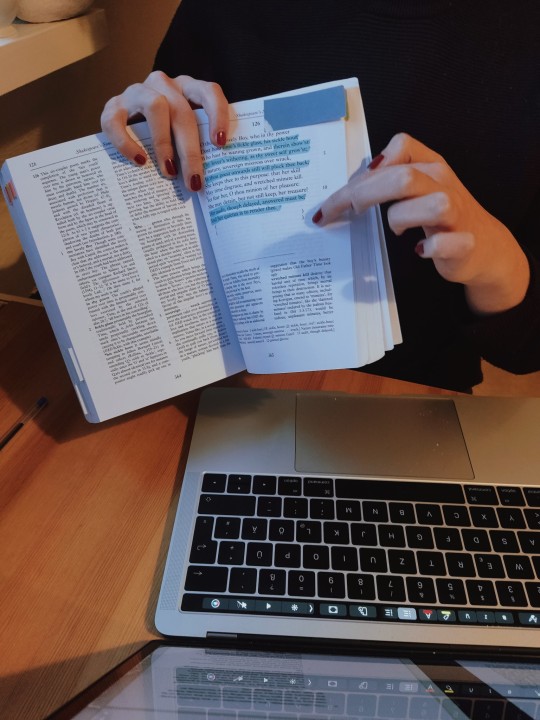


a couple of pics from the last weeks :) honestly uni is kinda exhausting rn. i've been working on my ba thesis every single day since the beginning of the year and while i do make progress and i don't doubt that i'll pass, i really need a break. and i could take a break! if it weren't for the horrors (overwhelming perfectionism). well, at least my topic is fun 👍🏼
#sorry for ranting on main but it needed to be said😔✋🏼#stressing so much and for what 💀#studyblr#langblr#aesthetic#study aesthetic#study inspiration#studying english literature#studying linguistics#studyspo#academia#jaystudies
891 notes
·
View notes
Text




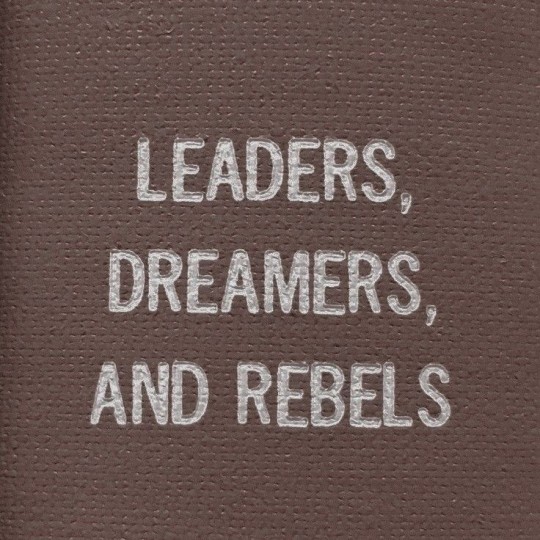
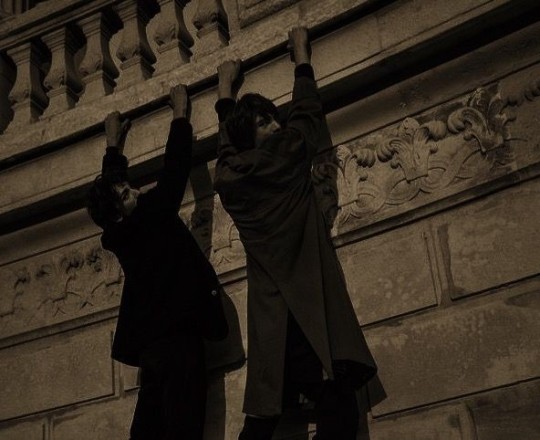

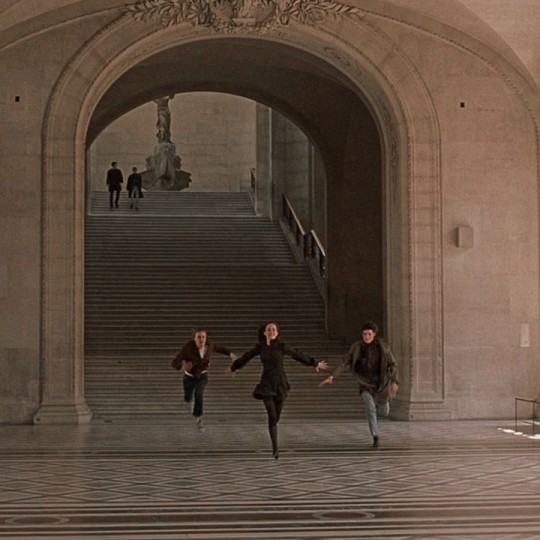
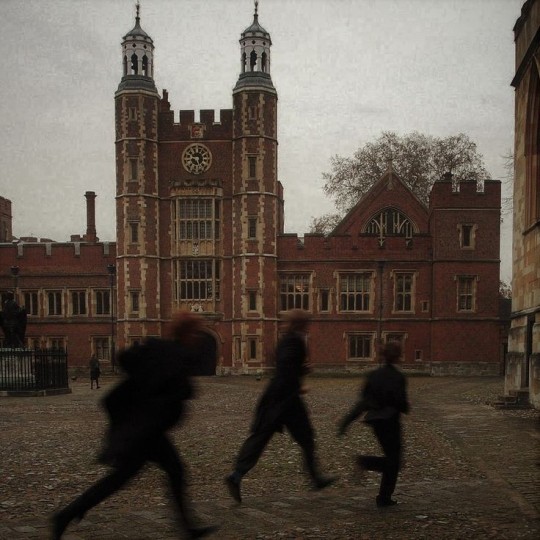
and amidst all the closed minds, speeches on the unacceptable,societal standards and judgements, i'd still choose to play the role of a rebel. for i am a dreamer. dreamers never stop.
#quotes#random#aesthetic#shitpost#light academia#literature#academia#dark academia#academia aesthetic#aesthetic moodboards#my moodboards#mood board#aesthetic moodboard#random moodboard#dark moodboard#moodboard#rant#rebel#dreamers#dreamcore#dark acadamia aesthetic#dark academic aesthetic
1K notes
·
View notes
Text
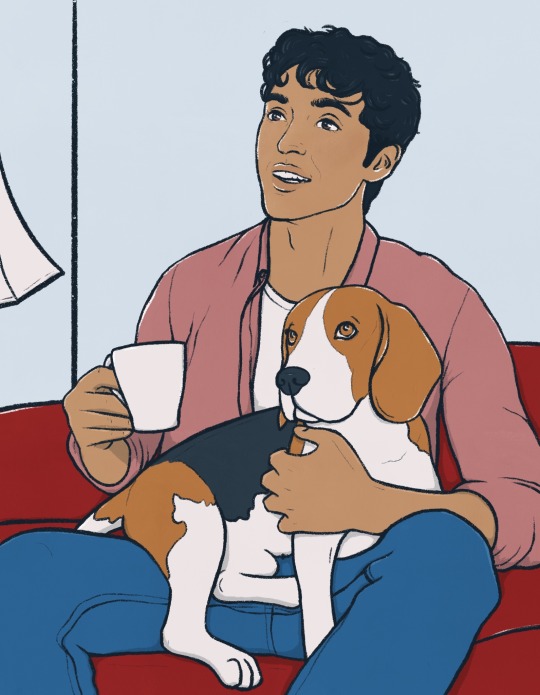
alex & david 🐶☕️
#red white and royal blue#rwrb fanart#alex claremont diaz#i imagine theyre listening to one of henrys literature rants lol#my art#graphics
539 notes
·
View notes
Text
Hey, so we don't talk enough about A Christmas Carol as being at least a little bit about not continuing a cycle of abuse and neglect, both against others and yourself.
In the book little Scrooge is left languishing over the holidays in a boarding school for some never-explained reason, but it is made very clear that this is miserable and unfair, and that his father is doing this on purpose. His sister specifically comes to tell him that "father is so much kinder now than he used to be, that home's like heaven." This also reflects a bit of Dickens's own childhood when his father went into debtor's prison and little Charlie was forced to support his family working full time in a shoe-blacking factory at the age of 12 (which is also why so many of his books seem to have a moral of "hey, kids are people too and maybe we shouldn't make them work in the mines.")
Whatever family reunion happened after didn't work out, because Scrooge continues believing that no one is coming to save him and pulling himself up by his bootstraps at the detriment of all other social relationships is the only way forward. And the more he lives by that philosophy, the more miserable he gets, because obviously he pushes away anyone who has that hope that he lost. They threaten to break down the walls he's built and teach him that a big pile of money doesn't have to be the only thing that he can rely on, if he'd just let himself be vulnerable and have a relationship with people who care about him, because they're out there even if he's ignoring them.
There is a certain type of person still very much out there who thinks this way. "I've never been happy in my life, so no one else has a right to be either. I was abused in my childhood so it's only fair that everyone else suffer as well." We see this in parents who still try to use corporal punishment, and in wealthy people who ignore the social factors keeping others down and scream that everyone else is just entitled, that only those who suffer and scrape deserve happiness. And they especially hate the people like Fred who represent the past that could have been, who have maintained hope for the future, and seem to be rubbing their optimism in your face, when in reality they're just maintaining hope because it's the only way you can survive.
It's so important for Scrooge to actually see the impact this thinking has on both himself and multiple generations. Rich people have this weird hangup about this story because they think Scrooge is bad because he's rich. He's not, he's bad because he's a horrible person and a miser - he doesn't use his money to better anything, including himself. Salting the earth, everyone suffers here, including him. And he learns that he's going to die old and alone without ever having spent or enjoyed his money, and that his family feels sorry for him, and that the nameless masses of poor people out there that he decries so much are in fact living, breathing people, including tiny disabled kids who don't deserve to suffer just because you decided life isn't fair.
In the end he takes responsibility for actually uplifting the people in the next generation who are trying to make the world a better place and no longer punching down, because it doesn't have to be this way. So many people out there just give up hope because things are hard and they think trying to improve things is a pointless exercise that makes them look dumb. How dare you grow a year older and not an hour richer! How dare you marry for love! That's the only thing more ridiculous than a Merry Christmas! When in reality, there are plenty of people who would love to see them happy if they just had a chance.
It's really sad that, while the language used to describe it has changed, these problems still persist. That people feel so wronged and isolated that they spend their days ensuring everyone else will be as well. That they fail to see their fellow humans as fellow humans who are just as deserving of love and kindness and a roof over their heads. I don't care what time of year it is, we should all be lifting each other up rather than tearing each other down.
#long post#rant#a christmas carol#charles dickens#history#books#literature#christmas#who hurt elon musk
755 notes
·
View notes
Text
"Samwise is the real hero-" "Frodo alone had the power to resist the ring-"
Neither Frodo nor Sam could have made it to Mount Doom alone, and they would have been caught if Aragorn hadn't been pitching a giant futile distraction battle in the west which wouldn't have succeeded if they hadn't recruited the Ents, Rohan, and the Dead Men of Dunharrow, Lord of the Rings doesn't *have* a hero, it has many flawed, imperfect individuals all doing what they can and knowing on its own it won't be enough, and trusting other people to do the same.
"I have found that it is the small everyday deed of ordinary folks that keep the darkness at bay. Small acts of kindness and love."
#lotr#frodo baggins#frodo and sam#samwise gamgee#samwise the brave#everyone in middle earth is important#I guess I'm getting ranty about a seventy year old fantasy series on main#dreadfulratgoblin has Opinions#rant#literature#fantasy#lord of the rings
2K notes
·
View notes
Text
Critical Role's Cameraman
So, Critical Role (@criticalrole) just released their newest opening title sequence, an animated sequence in the same style of Your Turn To Roll and I would be remis as a film nerd to not pick apart every detail.
What fascinates me about this introduction, however, is the camera movement and shot composition. Allow me to explain.
I DONT THINK THERE ARE SPOILERS AHEAD, BUT JUST TO BE SAFE

So, we open with a hand, this is a close up, I don't think that is unobvious.
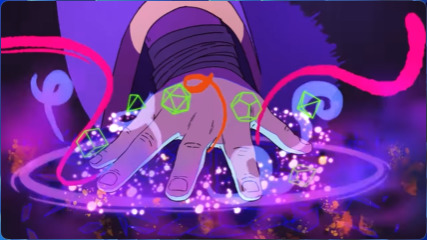
But this stops being a close up rather quickly, before it starts moving away. The shot just gives the hand context, and suddenly you aren't in an extreme close up of a hand, you are in a medium shot of a very large person. Then the camera pans backwards, and you can see villains and places spring up, although the perspective on Matt remains weird. Is he a few metres from you, or a hundred? How big is the Game Master here? There's a sense of mystery, of incomprehension. This is setting up some cosmic horror shenaniganry.

Then, we get Fearne. This is a wide camera motion, swivelling around her in a tracking shot that focuses on her face, and those eyes. It is like a reverse panorama, where Fearne is taking in the world, the world is observing Fearne.
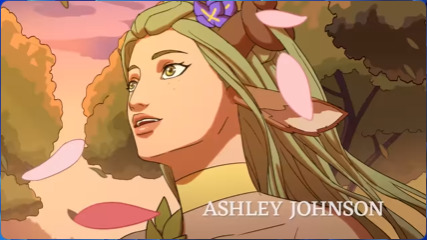
But I want you to take note of the leaves here, because they are used to form a connection between her and Orym. The transition uses them, while it isn't a direct wipe transition (the leaf just flies close to mask an abrupt cut), it is framed as one. The name of that isn't important, though, what's important is the leaves. By being in both shots, they emphasise the relationship between the two characters. But where for Fearn they show off her sense of wonder, for Orym, they take on a very different meaning.
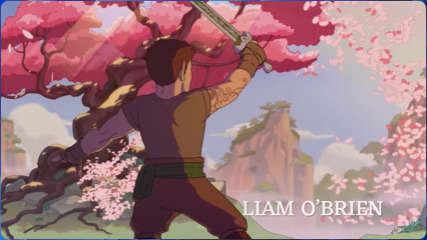
Notice, however, how still this shot is. There is no sense of danger here. This is a scene of a warrior with a sword and two people passing on from this world. But it's calm. Because this is a memory. Orym might not be at peace with the death, but the memory isn't a violent one, it's a memory of his family's lives.
Cut to a close up. Orym creates a gust of wind.
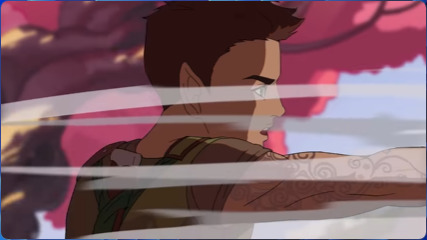
And cut to the next shot.
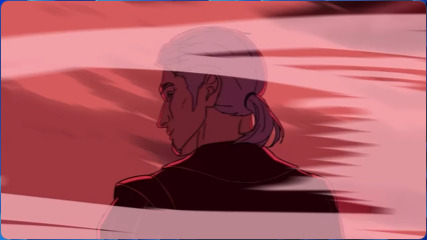
I will not lie, Bertrand is my favourite character across all of Critical Role, so this shot of him made me smile, but it isn't the point here. The point is Imogen's introduction.
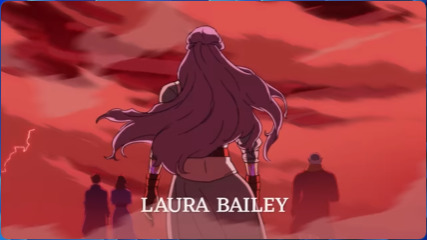
Although is Bertrand not actually the point? Because take a look at how Imogen is shown here. Do you notice anything?
She's shown in the exact same way. Imogen is shown doing the exact same thing that those who have died have done. And she can see them ahead of her. The camera panning back shows a wider perspective here, showing her as she tries to run, tries to get away from the same path as Bertrand.
The wind from Orym's blade that came to this scene gets across a consistent element: Memory. This is a dream. But dreams can become nightmares.
As Imogen loses her footing, the camera gives some of its wildest movements yet. It tumbles around her, then looks up.
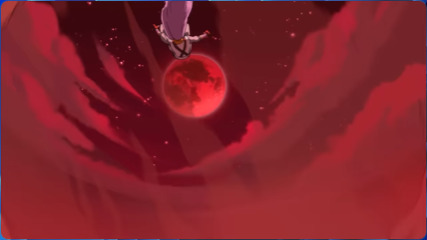
The camera stops moving when it sees the red moon, because now the viewer has something to orientate themselves around. There is a constant point, and we can see Imogen falling down. And getting closer, and closer, and closer, until.
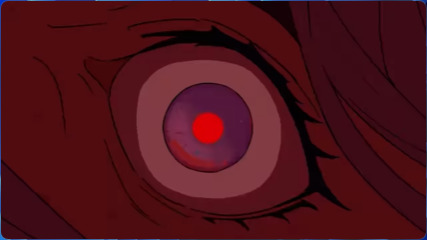
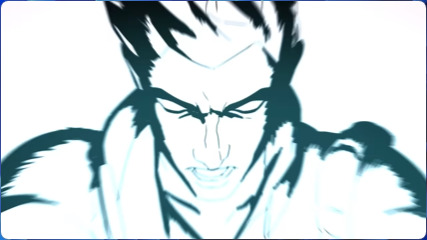

These are the three frames in order, there is nothing in between.
Imogen crashes into the screen, and we get an abrupt impact frame (that's the black and white one) then Ashton. This is so cool to watch, in my opinion, but it is quite possibly the opposite of smooth in camera work. So why is it so cool? Motion.
The motion is in towards Imogen and out away from Ashton. They are both falling, just in different directions. And the impact frame both helps smooth over and accentuate the abrupt transition.
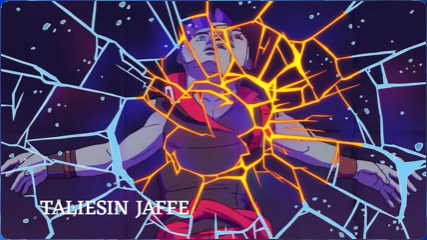
The camera around Ashton is a tracking shot. They are falling, but they remain the exact same in the screen (shrinking slightly). The rest of the world moves. And when Ashton lands, the screen cracks. The tracking shot is used to show Ashton's disassociation with their surroundings. Not in a "I feel nothing" type of way, but in a "it's me vs the world" type of way.
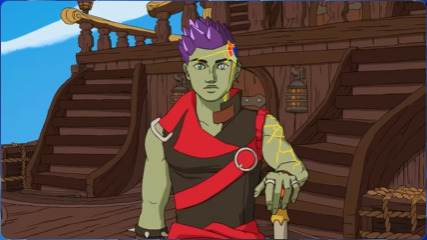
Then, there is an abrupt cut away. Nothing hides or smooths this at all, because Ashton's memory isn't smooth, and neither is Ashton. Remember the disassociating thing I mentioned, now it changes again to someone who gets lost in his thoughts. Medium.com calls this an "anxiety stare" and as someone who does that on the regular, I can attest to this abruptness being exactly what that feels like.

I'm not going to talk too much about the ship, but just be aware that there is a Dutch angle (the horison is diagonal) here to heighten the stress of it.
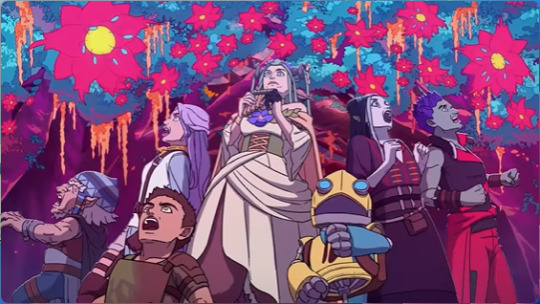
Likewise with this shot, there isn't much to talk about. The slow outward zoom and triangular composition are neat, and the tiered reactions (bottom row reacts, then middle, then Fearne) are amusing, but other than that, not much.
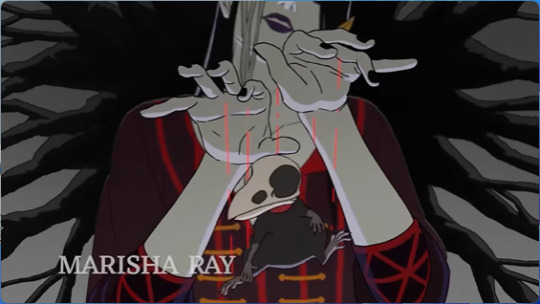
Then we meet Laudna, playing with Pate and giving him life. That's a neat little shot, I wonder if there's a metaphor there.
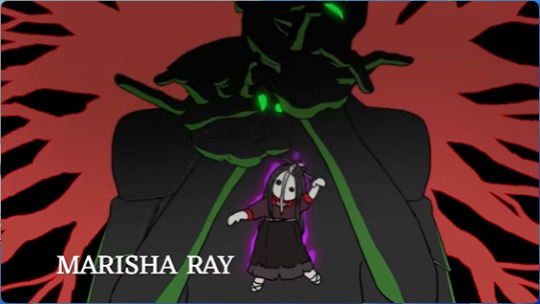
Oh.
This is a super cool visual because it establishes exactly who this character is in two seconds. But I also want to point out the symmetry of this. The hair becomes the blood which becomes the hair again, and then the tree.
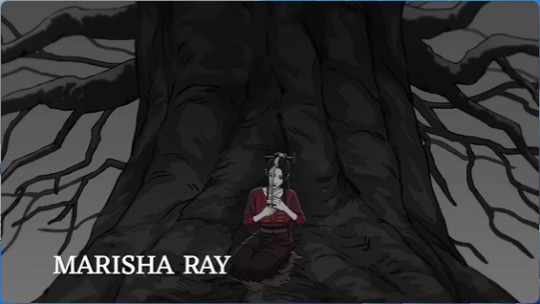
Laudna is introduced as big and scary and imposing, and that is very intentionally undercut by making her look small.
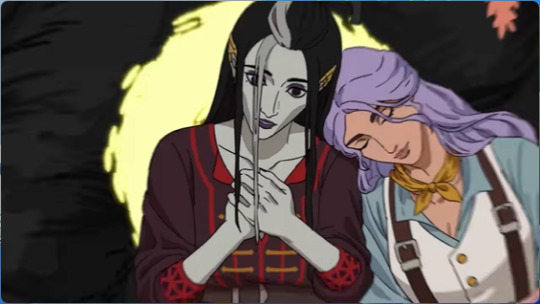
Being small means you are less likely to be the focal character, so shrinking Laudna takes away her agency. Only to give it back through Imogen, and when the camera pans back outwards, Laudna is the same size, but the colours and the surroundings make her feel less alone, and as a weird result of that, less small.
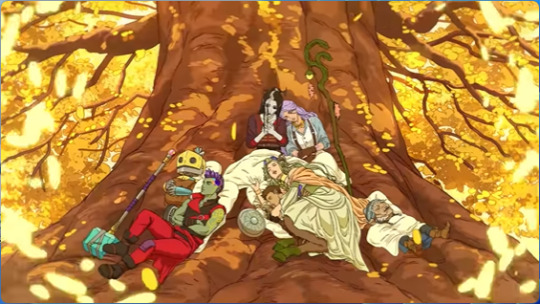
And last but not least in this moment, there is the delayed drop of the hands. Laudna finally feels safe and finally breathes a sigh of relief.
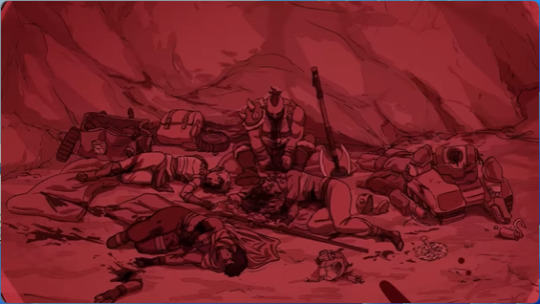
That, however, imediately match cuts to this. FCG's vision. The red tinting has obvious implications that I don't need to explain, but the match cut heavily implies a connection between this group and the Bells Hells. There is a fear that this might happen again made clear by a single transition.
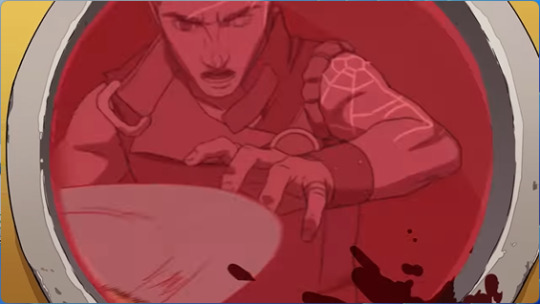
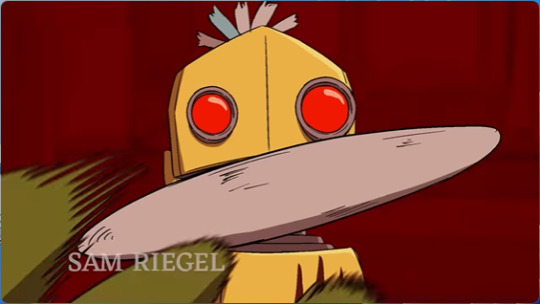
Here's something else. FCG doesn't move. At least, the camera doesn't treat them as moving. It's a slow panning out as if nothing is happening. It's the disassociation vibe that you get from Ashton's falling shots now repurposed to someone who isn't in control of their own actions. This is what FCG is afraid of, this is the important pieces of his character. This is FCG.
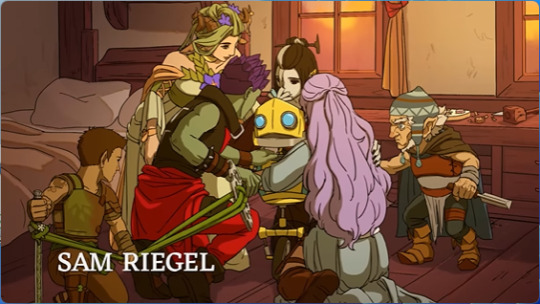
And just like Laudna, FCG finally gains agency when surrounded by their friends who hug them, and FCG finally moves.

Chetney Pock O'Pea, outlaw of the RTA, alpha of his own heart. A fundamentally chaotic character who takes rules as suggestions to be intentionally ignored. A man who's first instinct upon meeting you is to consider how you could be killed. And he is introduced whittling, with a steady camera and warm light illuminating his face. This is a peaceful side of Chetney, there is a duality to him.


Speaking of which, notice how Chetney draws back from the light as he transforms. His eyes begin to glow, but they don't illuminate him, until this:

Chetney is now backlit by the cold light of the moon itself (There's a neat reveal of Ruidus caused by the pan, but that's only tangentially relevant). Notice how much further you are from him here than in his first shot. But notice how much of him is visible, and how much of the screen he takes up. It's the same, this is still the same character. It's a true Doctor Jeckyl and Mr Hyde character. This isn't split personality, but a character who can be a different person in each form, while still remaining Chetney at all times.
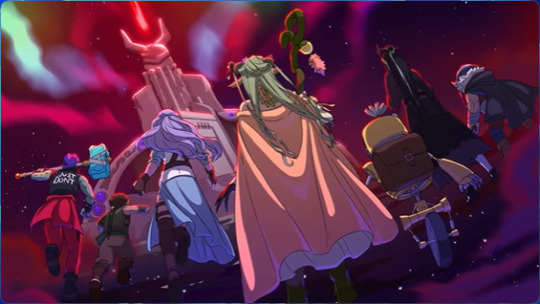
There is more in this video. I encourage you to watch it, but unfortunately, Tumblr has a limit on how many images I can include, so I will leave you with this final shot. A group of heroes looking up at a threat that is so much bigger than them, a threat that is literally controlling the light. But the Bells Hells are closer to the camera, they take up more of the screen. The battle isn't lost, instead, it is just starting.
#rants#literary analysis#literature analysis#media analysis#critrole#critical role#bells hells#imogen temult#laudna#ashton greymoore#fcg#orym of the air ashari#fearne calloway#chetney pock o'pea#its Thursday night#critical role bells hells
516 notes
·
View notes
Text
arey bhai ignore nahi kar rahi hu, mere mai energy nahi hai baat karne ki
#desi tag#desi blr#desi culture#desiblr#desi shit posting#desi tumblr#shitpost#desi teen#random rant#desi stuff#desi indian#indian tumblr#mutuals#desi life#desi humor#desi#desi thoughts#desi things#desi light academia#desi literature#desi romantic academia#desi romance
199 notes
·
View notes
Text
i am a friend to all cats. yes even the mean ones. they have their reasons.
#dark acadamia quotes#books and coffee#classic books#literature quotes#book aesthetic#literature lover#classic literature#old school romance#light academia#relatable#cute cats#cats#catblr#cats are love#kittycat#cat mom#random rants#ramblings#just ranting
1K notes
·
View notes
Text
Sometimes I get enraged with my past self. I hate that I let so much happen! "you should've known" "you should've said something" "you should've done things differently" but then I realize that post betrayal me is talking. Post hurt me is thinking. My past self was simply doing what she could and what she knew, she wasn't trained for when people took advantage of her good heart and good intentions, she didn't have a class on betrayal to which she could study for and attain gold stars from. She just drank her coffee, read her books, lived her life and gave every little ounce of love and every fibre of her being to those she loved bc when she loves, she loves hard.
And suddenly I'm grateful that she carried me all the way here and suddenly I'm thankful for her and how strong she was. And suddenly I want to hug her
#rant post#rant#tumblr#betrayal#quotes#quoteoftheday#dark academia#light academia#romantic academia#art academia#soft academia#soft aesthetic#softcore#soft girl#nostalgia#chaotic academia#books#cottagecore#gilmore girls#bella swan#literature#taylor swift#the tortured poets department#aesthetic#folklore#evermore#studyblr#sad thoughts#sad quotes#grungy aesthetic
157 notes
·
View notes
Text
The best duo >"<
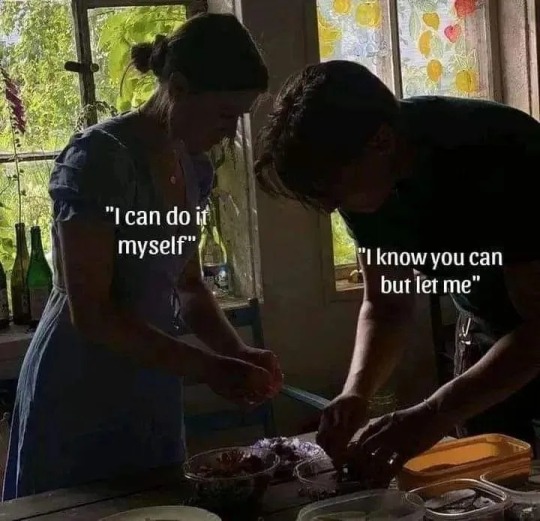
#enemies to lovers#enemies to friends trope#writing tropes#english literature#poems on tumblr#love rants#love#desi tag#desi rant#desi tumblr#desiblr#rants#desi shit posting#tropes#book quotes#booklr#bookblr#books#books & libraries#booklover#books and reading#bookworm#reading#public domain#free domain
263 notes
·
View notes
Text
The mortifying ordeal of admitting you do want to be loved vs the mortifying ordeal of not wanting people to pity you or feel bad for you vs the mortifying ordeal of wanting to reciprocate affection but being useless vs the mortifying ordeal of being careless with others and actually feeling bad vs the mortifying ordeal of being perceived as vulnerable at all.
#the mortifying ordeal of being known#literature#dark academia#spilled ink#escapism#chaotic academism#light academia#vintage aesthetic#art#tumblr writers#romantic academia#poetry#music#love#life quotes#being loved#chaotic academia#rant post#txt post#late night thoughts#love quotes#writeblr#art history
2K notes
·
View notes